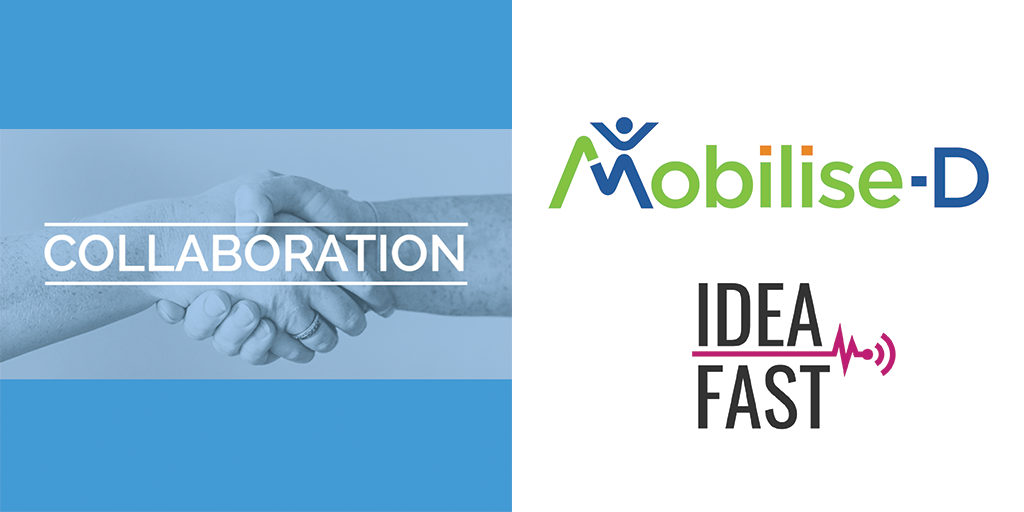From January 2021 onwards, two ongoing EU Innovative Medicines Initiatives, Mobilise-D and IDEA-FAST, will join forces to increase the impact and the benefits of digital health technologies developed by both projects.
“Mobilise-D and IDEA-FAST have very similar research goals”, says Prof. Walter Maetzler, Parkinson Cohort Lead in Mobilise-D and Co-Coordinator of IDEA-FAST. “Both projects want to use in-depth science and large observational studies to help us better understand mobility and everyday life aspects of people with various chronic conditions. What could be more obvious than to consistently combine the strengths of both projects and thus increase the impact for patients and medicine?”
Focusing on mobility assessment in chronic obstructive pulmonary disease, Parkinson’s disease, multiple sclerosis and proximal femoral fracture (Mobilise-D), and assessment of fatigue, sleep disturbances and instrumental activities in neurodegenerative disorders and immune-mediated inflammatory diseases (IDEA-FAST), both projects develop and validate digital biomarkers towards regulatory approvals.
“Use of digital sensors in biomedical research is highly promising”, says Nadir Ammour, Industry Co-Lead for Stakeholder Information and Results Dissemination and Exploitation in Mobilise-D and for Clinical Study Organisation & Management in IDEA-FAST, “yet there is no single player in the health ecosystem who’s primary role is to develop digital biomarkers. It requires collaborative efforts to bring together large multidisciplinary teams and experts to turn these opportunities into reality for the benefit of patients. There are many similarities in the approaches planned by both consortia to develop digital biomarkers in mobility, sleep and fatigue. Although the focus areas as well as targeted indications differ, there are several activities common to both consortia, and it is mutually beneficial to extend the collaboration between the two groups.”
Partners from both consortia will combine efforts to create maximum thematic and methodological synergies, and increase the impact of both projects. The topics of collaborations include areas such as ethics, data-sharing and regulatory approaches, dissemination activities, the creation of a Digital Health Academy, and working with target populations to improve patient outcomes. “I am extremely pleased about this cooperation”, says Walter Maetzler, “and particularly hope for decisive advantages for our young scientists in both consortia.” Nadir Ammour adds: “It’s with great pleasure that we now have established a bridge between both projects to amplify the impact of the work done and optimally collaborate for the greater goods: creating value for patients. It’s a strong message we are sending out to the public, the patients and the healthcare professionals.”
We are very pleased to announce this valuable collaboration and look forward to ongoing developments!




